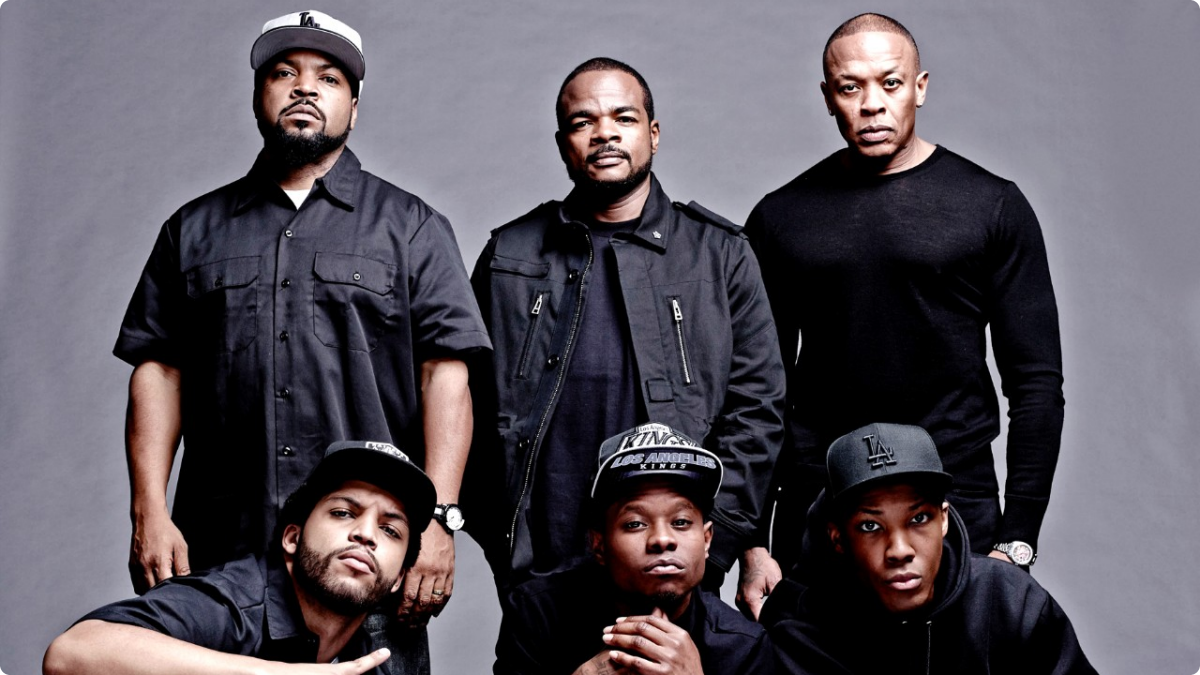Like N.W.A, ‘Straight Outta Compton’ likely to inspire imitations after massive opening
By Jake Coyle And Lindsey Bahr
THE ASSOCIATED PRESS
NEW YORK _ Underestimate the crossover appeal of N.W.A at your peril.
More than 25 years after the Los Angeles hip-hop group went double platinum with their unheralded debut album largely without the benefit of radio play, Ice Cube, Dr. Dre and the rest shook up Hollywood in the dog days of summer.
“Straight Outta Compton,” the N.W.A biopic produced by Cube and Dre, blew away industry expectations over the weekend with a $60.2 million debut, even higher than the $56.1 estimated on Sunday. The film, co-financed by Universal Pictures and Legendary Pictures for just $29 million, was propelled by the excitement stirred up by the film’s trailer, savvy digital marketing, strong reviews and the same kind of audacity that made N.W.A famous in the first place.
Just as N.W.A’s debut album stood out from the pack in 1988 when hair metal bands like Def Leppard and Guns N’Roses were dominating the airwaves, “Straight Outta Compton” stands far apart from the majority of movies to land at the multiplex this summer.
The only other film with a largely African American cast to hit theatres this summer was the independently made “Dope.” It’s a long term trend that’s found increasing scrutiny. A recent study by the University of Southern California found that nearly three-quarters of all speaking or named characters in the top 100 highest-grossing movies of 2014 were white.
So “Straight Outta Compton” _ a fresh and brash alternative to the usual summer spectacles _ arrived with a wave of enthusiasm behind it, rising to the level of must-see cultural flashpoint. The social conditions of N.W.A’s rise from South Central Los Angeles also bear particular relevance to recent protests over abusive and biased police enforcement.
On Sunday, filmmaker Ava DuVernay, whose Oscar-nominated January release “Selma” struggled at the box office despite rave reviews and similar relevance, tweeted a passionate response to “Compton,” saying it “captured the plight of the black artist.”
“We rapped along, clapped, laughed, cried. For all that has happened,” said DuVernay. “All the stifling of our voices as young black people in that place at that time while a war was going on against us.”
The success of “Straight Outta Compton” could encourage studios to embrace more racially charged stories. Certainly, many will hope for such an effect, even if it stands against the prevailing risk-adverse nature of today’s Hollywood.
“I don’t think this movie is going to change anything, but I do think we’re in the midst of a change. I think it’s subtle,” says David Poland, editor of Movie City News. “There is going to be a little less resistance in the next couple of years to movies about women and movies about people of colour and things like rap _ cultural things of the generation that is now 30.”
Before Universal jumped in, Warner Bros. passed on “Straight Outta Compton” in part because of the project’s riskiness. Those concerns earlier appeared to be justified. Marion “Suge” Knight, who’s portrayed in the film, is awaiting trial for allegedly running over two men in January after an altercation with Cle “Bone” Sloan, a technical adviser on the movie.
There were also fears of violence at theatres, particularly after several shootings at movie theatres in recent months. Universal helped some theatres pay for extra security, but no violence materialized.
What did materialize was the diverse audience of a mainstream hit. According to Universal, the film, which stars Corey Hawkins (as Dr. Dre), O’Shea Jackson Jr. (as his father, Ice Cube) and Jason Mitchell (as Eazy-E) was 46 per cent African American, 23 per cent Caucasian and 21 per cent Hispanic.
“This is a universal story,” said director F. Gary Gray in an earlier interview. “It can inspire people from all walks of life. And if you hire unknowns, the story will stand on its own. You won’t be distracted by a celebrity mimicking another celebrity.”
Phil Contrino, chief analyst for BoxOffice.com, believes “Straight Outta Compton” has already inspired more films like it, even if N.W.A remains a singular entity particularly ripe for the biopic treatment.
“I guarantee executives before this movie opened were having conversations about what kind of rap biopic can we do next, what’s the next landmark story that hasn’t been told,” said Contrino. “This will definitely lead to a new wave of music biopics.”
For now, the force of “Straight Outta Compton” has startled Hollywood in the usually quiet late summer days _ about the same time of year that N.W.A’s debut shocked the country in early September 1988.
“The release date turned out to be perfect in terms of audiences being ready for something of substance that’s also entertaining,” said Nick Carpou, head of domestic distribution for Universal. “This kind of result points to the fact that there was an audience out there for this. And boy did they come out.”
___
Bahr reported from Los Angeles.





